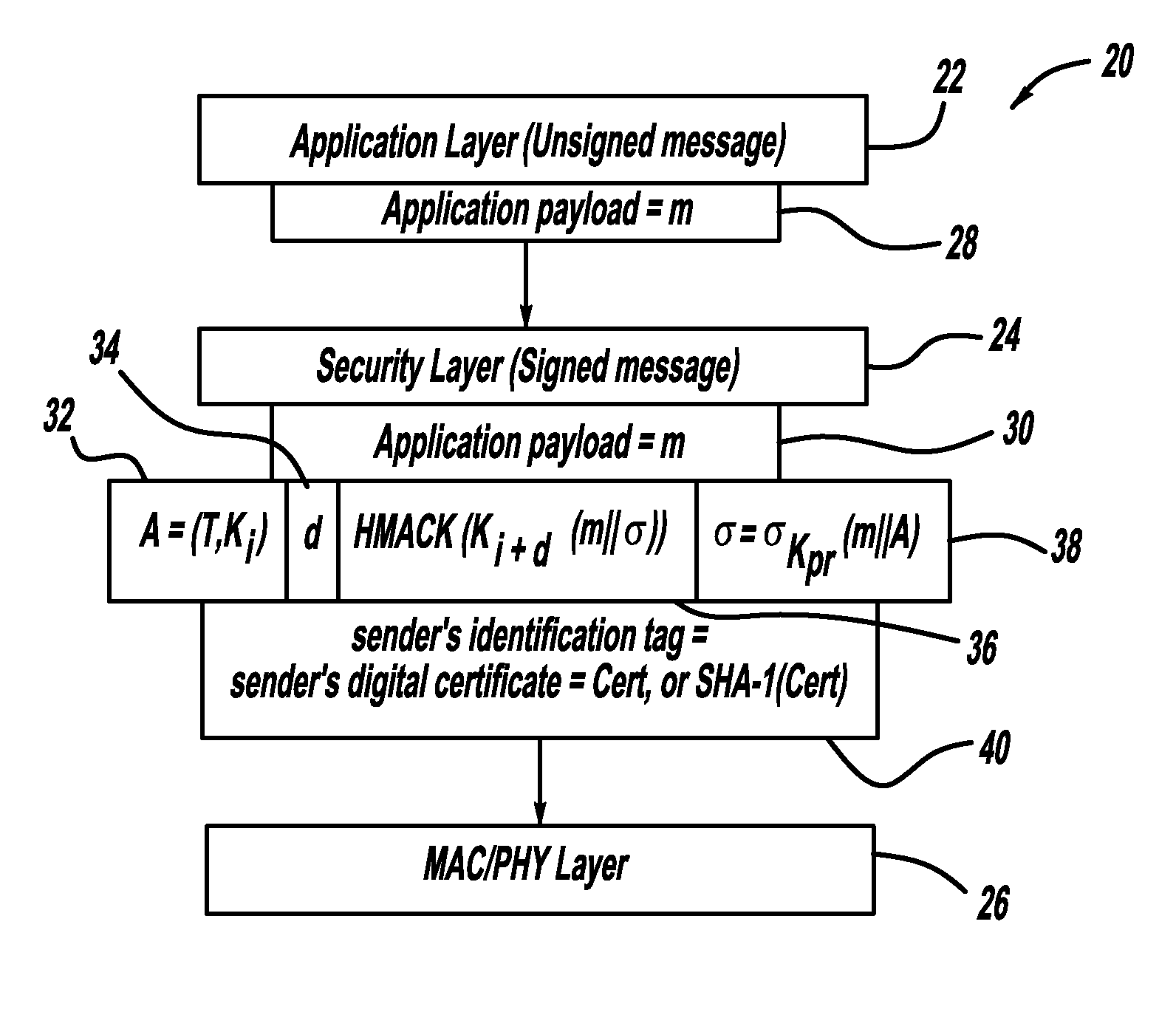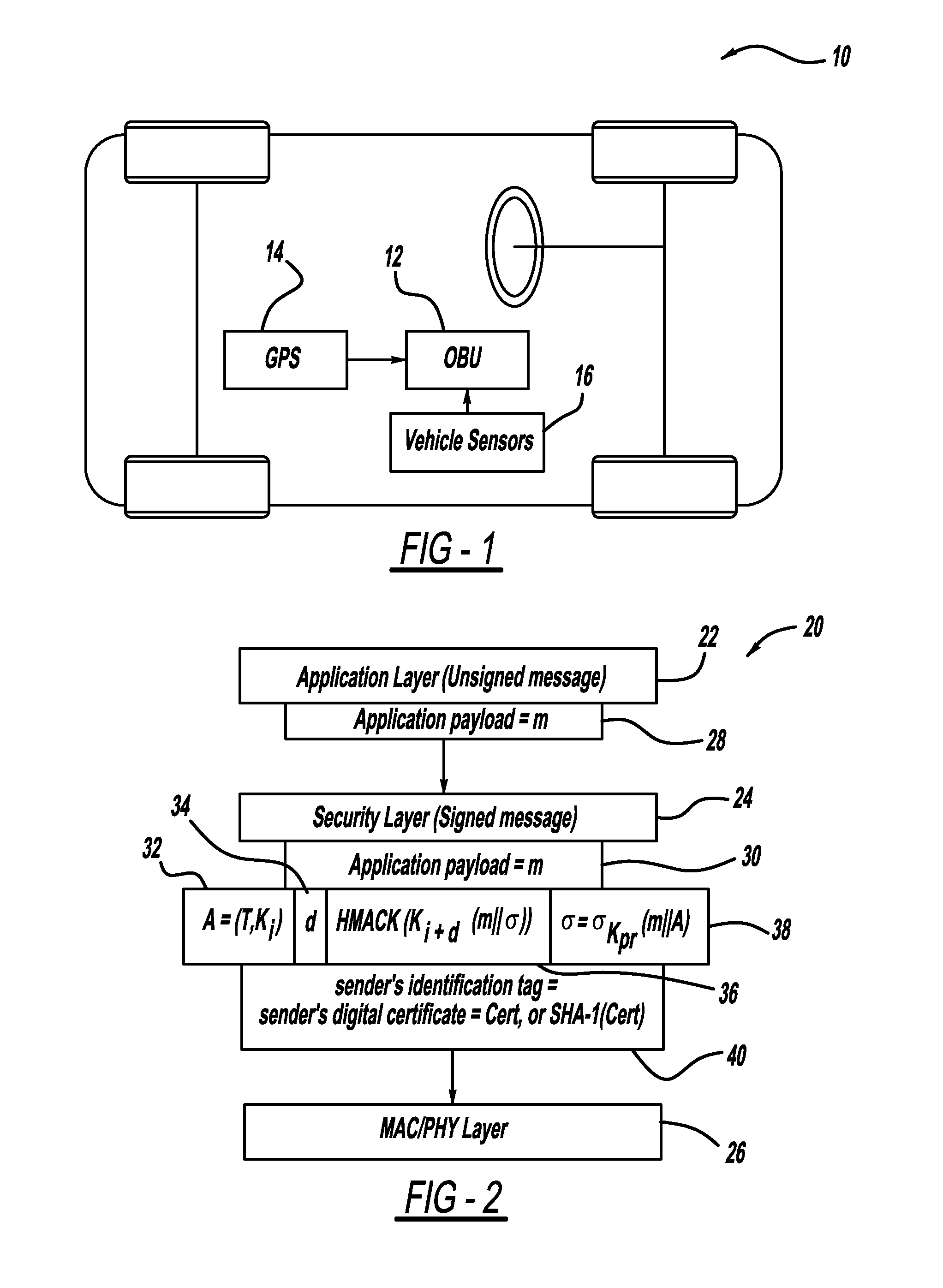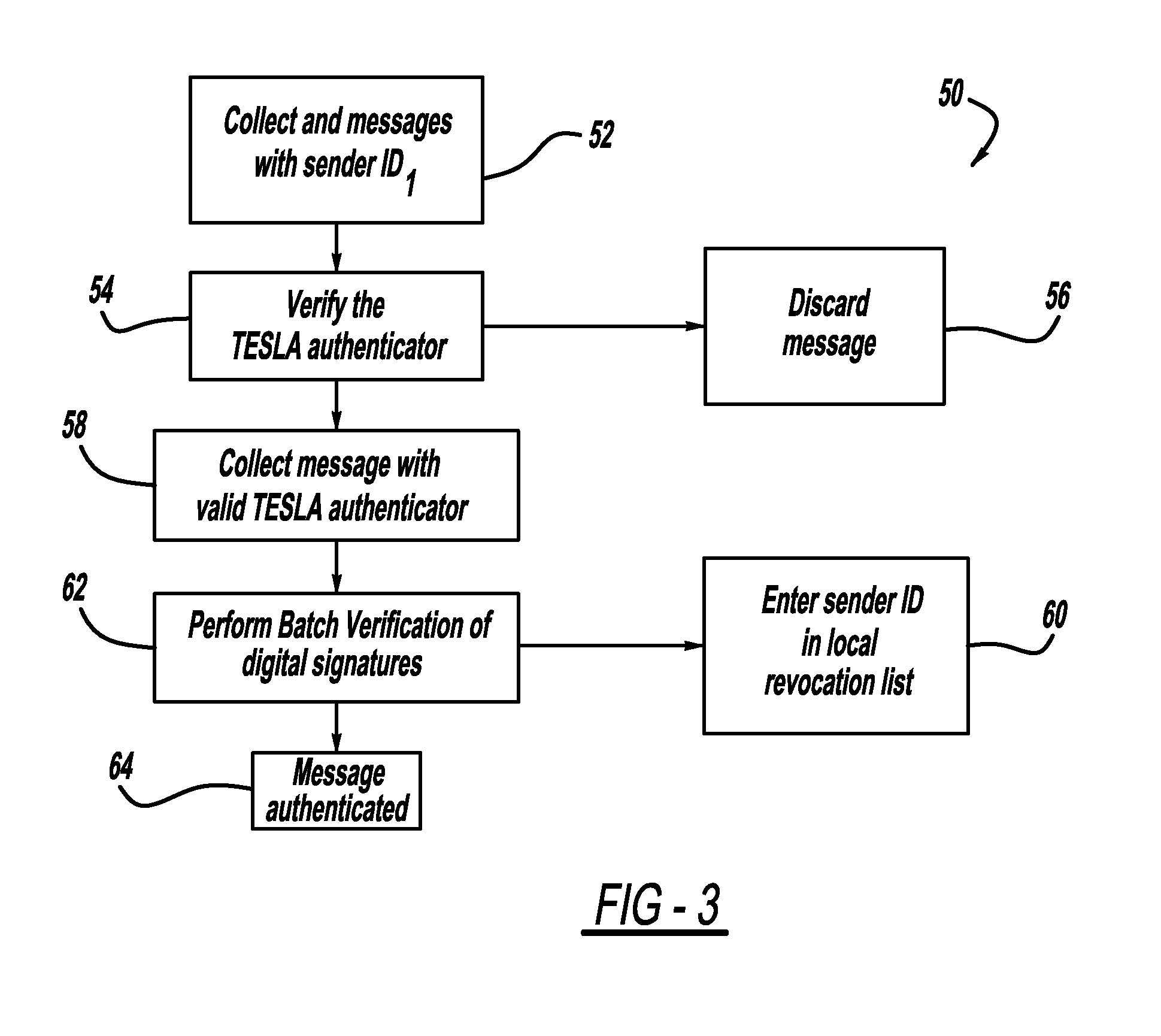Efficient technique to achieve non-repudiation and resilience to DoS attacks in wireless networks
a wireless network and wireless network technology, applied in the field of wireless network system and method for authenticating a message transmitted in a wireless network, can solve the problems of computational denial of service attacks, large share of automotive processors for generating and verifying digital signatures, and large amount of additional bandwidth consumed
- Summary
- Abstract
- Description
- Claims
- Application Information
AI Technical Summary
Benefits of technology
Problems solved by technology
Method used
Image
Examples
Embodiment Construction
[0036]The following discussions directed to an authentication protocol for a wireless communications system that employs both a digital signature and TESLA authentication is merely exemplary in nature, and are in no way intended to limit the scope of the invention, its applications or uses.
[0037]FIG. 1 illustrates a plan view of a vehicle 10 including an on-board unit (OBU) 12 for a V2X wireless communication system. The OBU 12 receives location information from a GPS (Global Positioning System) receiver 14, and is able to communicate with other OBUs on other vehicles within a limited range. The vehicle 10 also includes various types of vehicle sensors 16, such as cameras, accelerometers, temperature sensors, etc., that provide information to the OBU 12. The vehicle sensor information can be used by the OBU 12 to notify other vehicles of various road and other conditions, such as ice, oil spills, etc.
[0038]The following describes a computationally efficient message verification stra...
PUM
 Login to View More
Login to View More Abstract
Description
Claims
Application Information
 Login to View More
Login to View More - R&D
- Intellectual Property
- Life Sciences
- Materials
- Tech Scout
- Unparalleled Data Quality
- Higher Quality Content
- 60% Fewer Hallucinations
Browse by: Latest US Patents, China's latest patents, Technical Efficacy Thesaurus, Application Domain, Technology Topic, Popular Technical Reports.
© 2025 PatSnap. All rights reserved.Legal|Privacy policy|Modern Slavery Act Transparency Statement|Sitemap|About US| Contact US: help@patsnap.com



